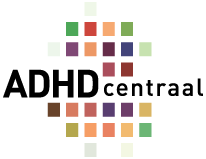Our treatment
At ADHDcentraal, treatment starts with psychoeducation. We do this in groups or individually. It explains what ADHD is, what symptoms are associated with it and what the treatment options are.
For the treatment of ADHD, the combination of cognitive behavioral therapy (CBT) and medication for the ADHD is often the most effective option. Of course, psychological treatment without medication is also possible. Which form of treatment is most appropriate can vary from person to person.
Treatment with ADHD medication
The most proven effective medications for ADHD are stimulants. These medications often lead to a decrease in the symptoms of ADHD such as:
- improved concentration
- more peace of mind and body
- more control over thoughts, emotions and behavior
Experiences with medication can vary from person to person. Therefore, it is important to meet regularly with your practitioner and discuss the effects of medication.
Treatment without ADHD medication
ADHD treatment without medication is also possible. Often, a CBT treatment focused on insight, awareness and planning and organization can lead to improvement in daily functioning. Together we decide what the most appropriate treatment for you is. Should it become apparent during the psychological ADHD treatment that it is hindered by the ADHD symptoms, the use of medication can still be discussed.
